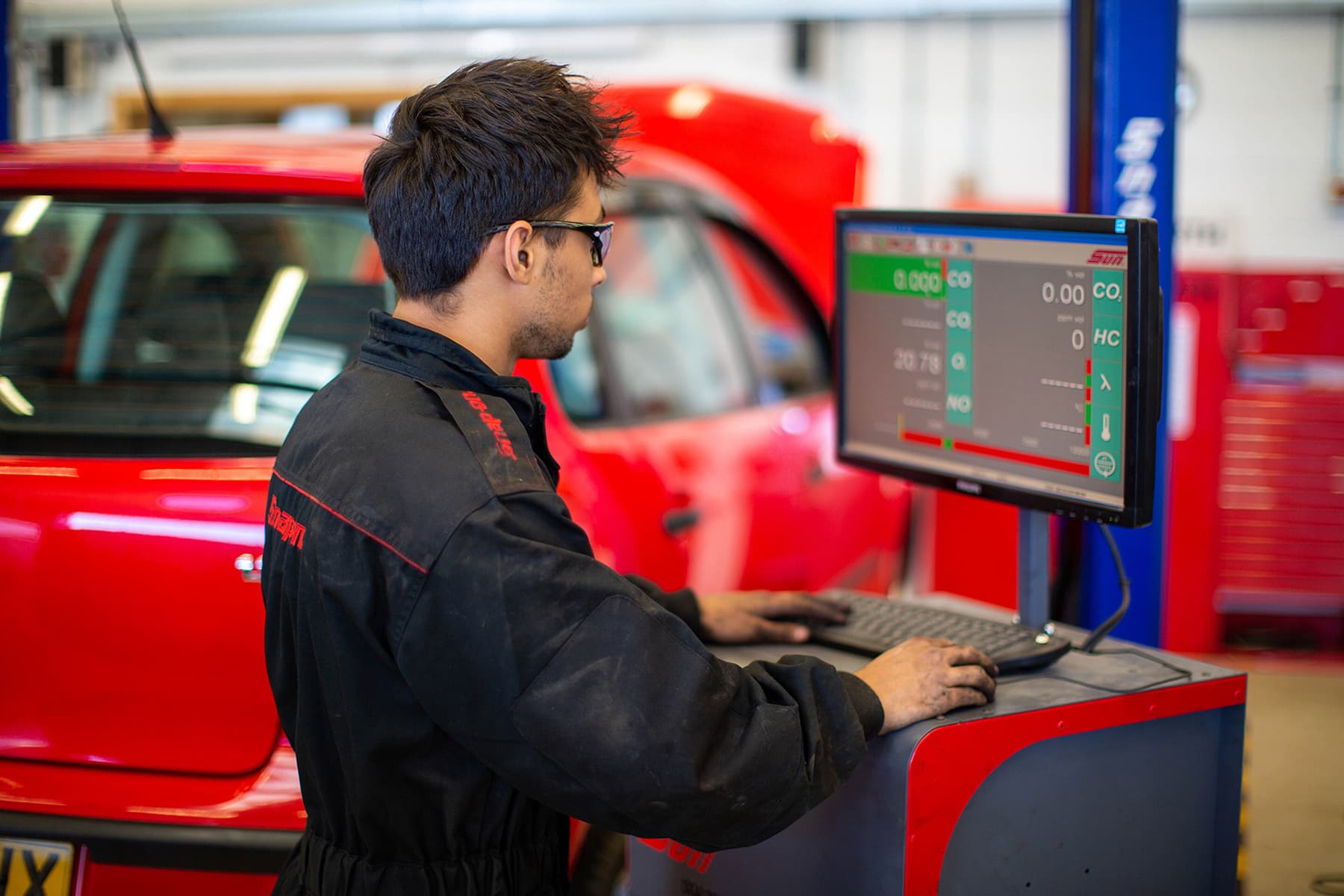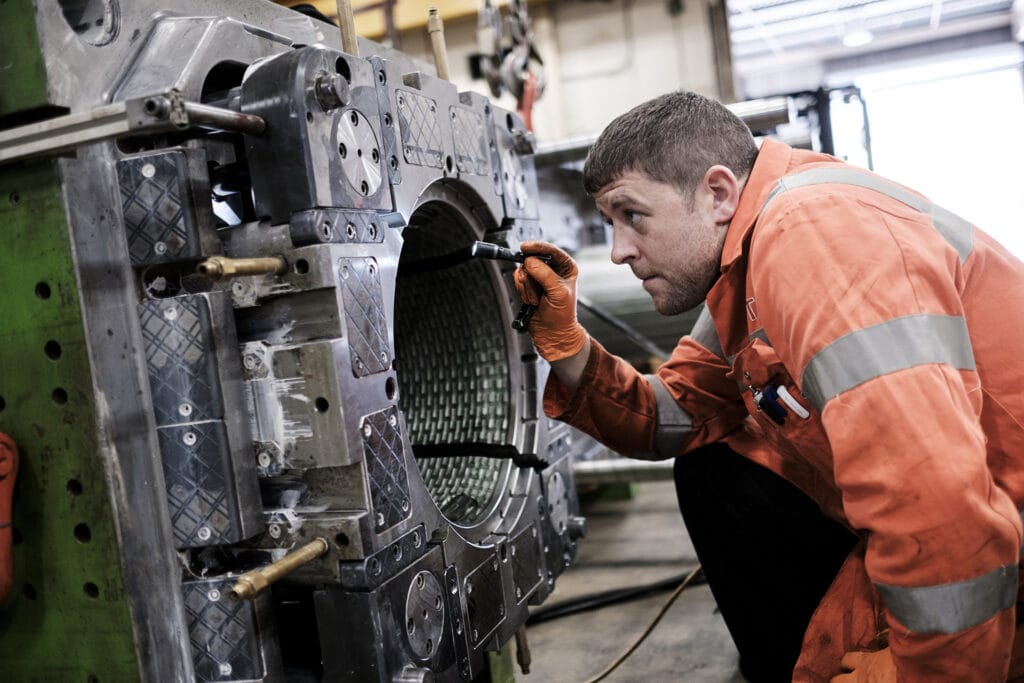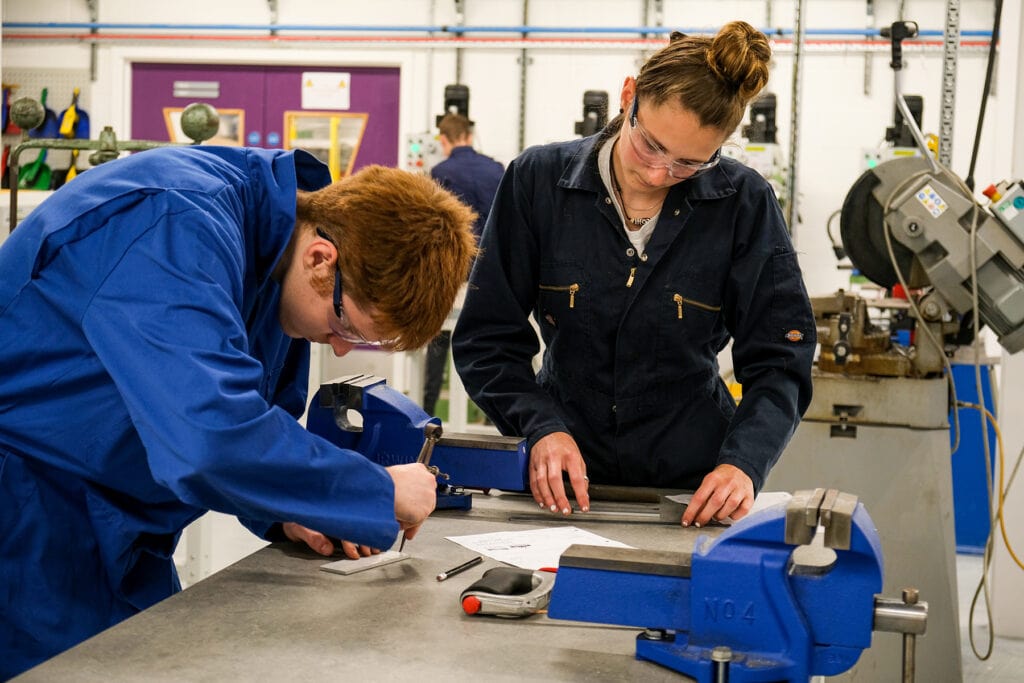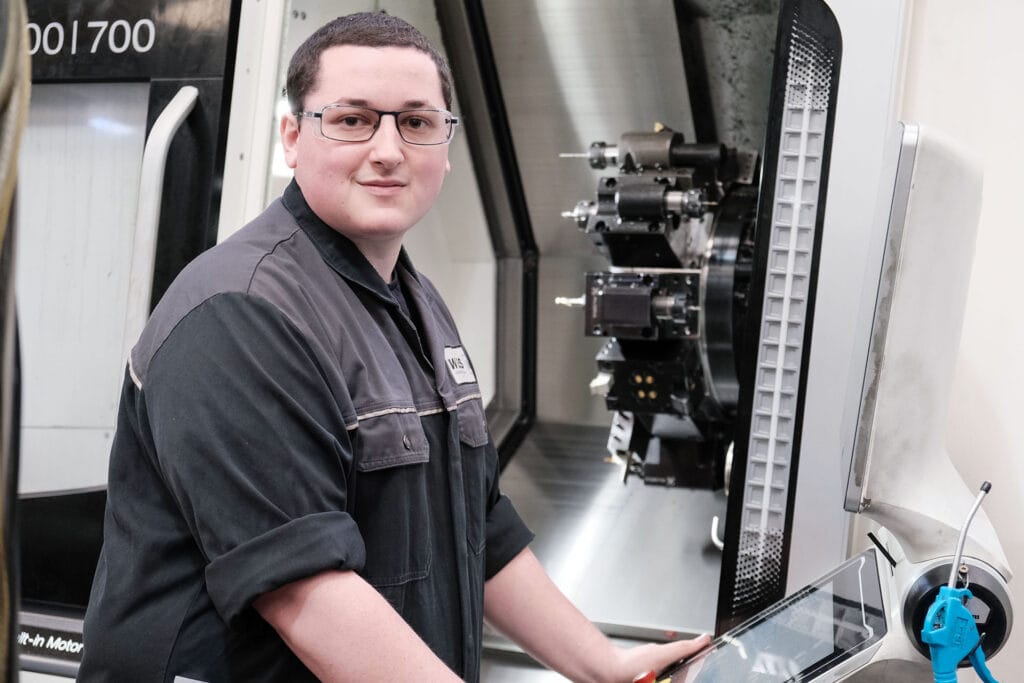From Monday, September 22, all students must ensure they have a valid, working pass for the bus service they are using. Student ID cards will no longer be accepted on board services. Full instructions can be found on our Transport page.
WHY CHOOSE THIS COURSE?
This apprenticeship standard equips individuals with the skills to service and repair light vehicles, such as cars and vans, in various settings including dealerships and independent garages. Apprentices will learn to work on all vehicle systems, from simple part replacements to complex diagnostics, while adhering to environmental and safety standards. This programme emphasises the importance of teamwork, customer service, and commercial awareness, preparing apprentices for a dynamic and evolving industry. Ideal for those passionate about automotive technology, this apprenticeship offers a pathway to a rewarding career in the automotive sector.
Apply for this course
Start date: 06/10/2025
TOP COURSE HIGHLIGHTS
Industry-standard facilities
Highly experienced tutors
Develop skills in line with industry needs
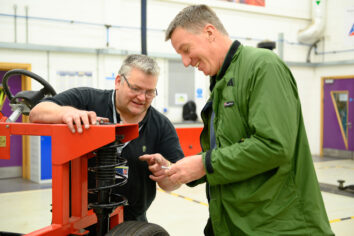
Learn from sector experts
Gain invaluable insights and hands-on experience from industry expert tutors who bring real-world knowledge and expertise to the classroom. Their guidance will help you develop the skills and confidence needed to excel in your chosen field.
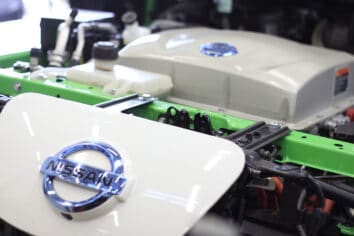
Develop work-related skills
Enhance your practical abilities and gain hands-on experience that directly translates to the workplace. This apprenticeship course focuses on real-world applications, ensuring you are well-prepared to meet the demands of your chosen career.
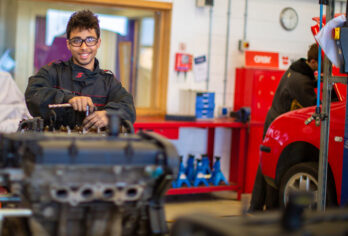
Enjoy professional surroundings
Immerse yourself in a dynamic and supportive environment that mirrors the professional world. This apprenticeship course provides access to state-of-the-art facilities and resources, helping you to thrive and feel confident in your career journey.
WHAT WILL I LEARN?
Knowledge This apprenticeship provides learners with a comprehensive understanding of vehicle systems and their operation. Apprentices will gain knowledge of legislative, regulatory, and ethical requirements, including health and safety laws and environmental procedures. They will also learn about the structure of the automotive industry, business operations, and the systems and processes that ensure efficient business functioning. This includes understanding how to meet business targets and the importance of customer service and commercial awareness.
Skills This apprenticeship will enable learners to develop practical skills in servicing and repairing light vehicles, such as cars and vans, across various systems. This includes performing routine maintenance, diagnosing complex faults, and using diagnostic equipment effectively, such as OBD-II scanners, multimeters, and workshop testers. They will learn to work independently and as part of a team, manage resources efficiently, and ensure environmentally conscious waste disposal. Additionally, apprentices will enhance their customer handling skills, ensuring high-quality service and customer satisfaction.
Behaviours Apprentices are expected to demonstrate professionalism, integrity, and a strong work ethic. They should show respect and courtesy towards colleagues and customers, and work effectively both independently and as part of a team. Additionally, apprentices must be adaptable, willing to learn, and committed to continuous improvement, ensuring they stay up-to-date with the latest industry developments and technologies.
Typical Duties that an Apprentice will carry out in the workplace:
- Performing routine maintenance: This includes oil changes, tyre fitting, and general servicing of vehicles.
- Conducting diagnostic investigations: Using various diagnostic equipment such as OBD-II scanners and multimeters to identify and troubleshoot faults.
- Assisting with complex repairs: Shadowing and assisting experienced technicians on more complex jobs to gain hands-on experience.
WHERE WILL IT TAKE ME?
Completing the Motor Vehicle Service and Maintenance Technician (Light Vehicle) Apprenticeship opens up a range of career opportunities in the automotive industry. Apprentices can progress to roles such as senior technician, workshop supervisor, or service manager. With further training and experience, they may also specialise in areas like diagnostics, hybrid and electric vehicle technology, or even move into teaching and training roles within the industry.
ASSESSMENT ARRANGEMENTS
The End-Point Assessment (EPA) is a crucial component of apprenticeship standards, designed to evaluate an apprentice’s knowledge, skills, and behaviours (KSBs) acquired during their training. The EPA typically includes a combination of practical assessments, professional discussions, and portfolio reviews, ensuring apprentices are fully prepared for their chosen career. This assessment is carried out independently by an End-Point Assessment Organisation (EPAO), ensuring impartiality and fairness. Employers play a key role in confirming readiness for the EPA, supporting apprentices throughout the process to achieve successful outcomes.
EPA (End Point Assessment) methods
- Online knowledge test
- Synoptic skills test
- Synoptic professional discussion
ENTRY REQUIREMENTS
Grade 4 GCSE (C) in English and Maths.
Meet the staff, tour the campus and find out about life as a student at one of the best colleges in the country.
